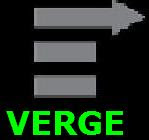If you're a real entrepreneur, stories like this are not as foreign as some would think. We've all had a "billion dollar idea" at some point and like the proverbial you in the story, we have all been mistaken. Venture capitalists can be very fickle people. No two will see an opportunity in the exact same way. Before you commit yourself to the idea of venture capital, ask yourself a few simple questions: Are you sure a VC will want your idea in the first place? If they do, how will you make them aware of your idea? What are their triggers for investment? We'll do our best to answer these questions for you.
What is a Venture Capitalist?
A Venture Capitalist or VC for short, is a person or investment firm that lends large sums of money to entrepreneurs with a dream. Most VC's are searching for business models (notice I didn't say systems) which have the potential for freakish growth in the short term and a management team to sustain that growth over the long term. Most VC's will want to work with a management team ( and in some cases join the board of directors) to ensure the business system will 1) return their investment 2) double, triple, quadruple their investment 3) be built correctly to make sure it sustains long term positive returns on their investment. Some venture capitalits prefer to invest in long-shot start ups, while others like late stage investments where the idea and business system has already been proven successful.
What are VC's looking for?
Venture Capitalist's invest in all kinds of products and serivices. VC's will first read the Executive Summary of your business plan to determine if your idea is worth a second look. For that reason alone, the executive summary is arguably the most important document you will ever produce if your looking to catch the attenture of a venture capitalist. When reading your Executive Summary, Venture Capitalists are looking for the three golden standards; viability, fundability and feasibility. Let us explain:
Viability: Does your idea have the capicty for survival? In other words, can your idea support the top of mind brand recognition it will need to become an absolute cash cow. Also, they want to know if your management team will have the wherewithal to consistantly push boundries and make big things happen.
Fundability: VC's are only interested in ideas that have the potential and viability to produce insane returns on their investment(s). If your idea won't hit the 50-100 million dollar mark in the first 5 years, good luck trying to get some attention. Venture Capital isn't a romance novel and a warm cup of coco by the fire. If you intend on getting in the ring with these guys, you better come with your guns, knives, and laser beams ready to action. In other words, make sure your idea can make money before you approach a VC.
Feasibility: This step is basically for checks and balances. A feasibility review, if done correctly, should measure whether or not your seperate conclusions of viablity and fundability actually make sense once you put them together.
So what is the Executive Summary?
The Excutive Summary is the first sheet after the table of contents in your business plan. A well written Executive Summary will have seven main components. These components should be written out in the following order:
1) Who/what your company is (mission statement)
2) Product/service
3) Target Market
4) Competitive Advantage
5) Goals and Objectives (your vision statement)
6) Yours and your management team qualifications
7) Finances (what will it cost you to complete and launch your idea. How will you pay for it / use their money)
If you complete an air tight Executive Summary, writing the actual business plan should be fairly easy. We would advise you to complete a full plan; especially the Marketing and Financial portions. Something you should consider, that most people overlook, is the educational backgrounds of the VC's your submitting your idea to. The purpose of this is simple-imagine you have a great pick and pack robot idea, and your VC target is a graduate of M.I.T. Wouldn't it make sense to have a stellarTechnology and Financial Plan? How about if your looking to launch a user generated social video site which specializes in short films and your target spent 25 years as a show producer at Time Warner? Wouldn't it make sense to write a bomb proof Marketing Plan? Remember, VC's are fickle people. It's usually the seemingly small and most obvious things that get overlooked, so take your time and be smart about things.
As a true entrepreneurs, we know your hunger to succeed will eventually take you exacty where you want to go. However, if you should happen to need some help along the way, Verge is here to help develop your ideas into the monsterous profit machines you've always dreamt of. Contact us whenever and however you feel comfortable-our team is ready when you are!!
Sent via BlackBerry

No comments:
Post a Comment